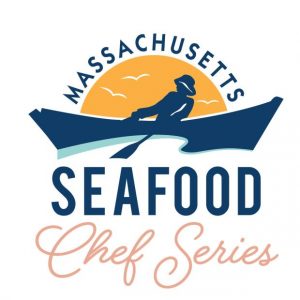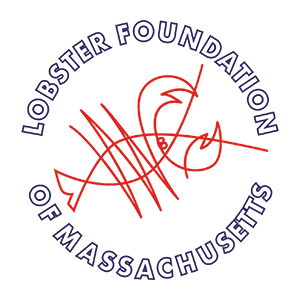The National Fish and Wildlife Foundation awarded Lobster Foundation of Massachusetts, (LFoM) grant funding for its project, “Grappling with Technology for Cost-Effective Solutions in Fishing Gear Innovation. (MA)
The LFoM in collaboration with the Massachusetts Lobstermen’s Association, Real Time Data (DECKHAND electronic logbook), Acbotics Research LLC., and the Massachusetts commercial fishermen partnered together to test grappling using technology as a solution to minimize gear conflict between fixed and mobile gear commercial fishermen and to reduce interactions with North Atlantic Right Whale (NARW). The project location will be Southern New England beginning in the spring of 2025. Grappling with Technology is a cost-effective solution for new gear innovations. Testing the efficacy of grappling with the use of these integrated technologies will improve the efficiency of grappling. This is a more cost-effective and efficient solution than the use of an extremely expensive pop-up buoy system to remove vertical lines in the water column that could lead to a potential interaction with NARW.
On July 20, 2023 the Massachusetts Division of Marine Fisheries funded the Lobster Foundation of Massachusetts (LFoM), project “Preservation the Right Way” under the 2022 Environmental Economic Innovation and Resiliency Marine Fisheries Grant Program.
The LFoM is dedicated in its pursuit of marketing and educating consumers on nutritional, sustainable, responsibly harvested Massachusetts lobster and on North Atlantic Right Whale (NARW) conservation efforts. The LFoM and the Massachusetts Lobstermen’s Association (MLA) will be conducting educational outreach lectures around the Commonwealth to educate on ALL things lobster related as well as the facts about ALL the conservation efforts put forth by the MA commercial lobster industry.
It is vital that consumers, tourists, and businesses alike know that the MA commercial lobster industry are partners in preservation and the sustainability of all facets of the eco-system they depend upon. Massachusetts lobsters are a high-quality product, fished from Massachusetts waters using approved conservation practices for harvesting and handling of lobsters and dedicated conservation efforts to protect the NARW.
Another component to this grant funding is the ability to purchase the “Right Way Green Lobster Bands” to be given out to the MA commercial lobster industry to be used as an identifiable marketing tool.
The LFoM and the MLA will be distributing the “Right Way Green Lobster Bands” in the spring of 2024.
Want to learn more?! Click here!
Afterwards, we’d appreciate it if you took the time to fill out the “Preservation the Right Way” survey. This will only take one minute of your time!
On March 16th, 2022, the Lobster Foundation, received a $40,000 grant from the Massachusetts Environmental Trust, www.mass.gov/orgs/massachusetts-environmental-trust Drive for a Better Environment grant program. The project will provide education and outreach to Massachusetts lobstermen on the requirements and proper use of new buoy marking requirements, as well as support the use of weaker red and candy cane rope by teaching rope splicing/insertion skills for use as approved weak contrivances.
The Lobster Foundation strongly encourage supporting the environmental programs funded by the Trust in your community.
There are three environmental plates to choose from; the Right Whale & Roseate Terns, The Leaping Brook Trout, or the Blackstone Valley Mill. Visit your local Registry of Motor Vehicles to order a plate on-line at www.massrmv.com.
In April, 2022 the Massachusetts Seafood Marketing Program in partnership with the Woods Hole Sea Grant, awarded the Lobster Foundation, (LFoM) and the Massachusetts Lobstermen’s Association, (MLA) grant funding to re-brand its educational literature.
The goal of the LFoM and MLA is to continue with its educational/promotional outreach efforts to educate the public on a healthy, sustainable lobster industry and the conservation efforts that Massachusetts commercial lobstermen do on behalf of the North Atlantic Right Whale and the entire marine eco-system.
Massachusetts Commercial Lobstering the Right Way
(ROTATE 3X’S)
The Lobster Foundation of Massachusetts received a financial boost with a $50,000 grant from the Massachusetts Environmental Trust. This funding will enable Lobster Foundation of Massachusetts to develop a Whale Safer 1,700 lb Red rope project to deploy a whale safer 1,700 lb red rope to reduce the Serious Injury and Mortality to the North Atlantic Right Whale. Read full press release here.
Update on Whale Safer 1700lb Red Rope: On September 22, 2020 the Lobster Foundation of Massachusetts mailed out a Red Rope Questionnaire for a mid-project update, to all commercial lobstermen participating in the Whale Safer 1,700 lb Red Rope Project for feedback on the whale safer red rope.
Whale Safer 1700lb. Red Rope Project Update: The Lobster Foundation of Massachusetts has completed the Whale Safer 1700lb. Red Rope Project. Click the link for the final report: Final LFoM Report for MET 4-6-21
The Lobster Foundation of Massachusetts (Foundation), Stellwagen Bank National Marine Sanctuary (Sanctuary)and the National Marine Sanctuary Foundation have partnered together to educate and inform the recreational mariner and the public on the importance of keeping Stellwagen Bank National Marine Sanctuary and the ocean free of marine debris one pailful at a time. Kickoff event June 22, 2019 More event details here.
The Massachusetts Lobster Foundation in conjunction with the International Fund for Animal Welfare and the Massachusetts Lobstermen’s Association embarked on a small buoyless fishing pilot test project in Cape Cod Bay in the summer of 2018. More information can be found HERE. Cape Cod Times article.
Watch the MA Division of Marine Fisheries, Woods Hole Sea Grant, National Fish and Wildlife and the Massachusetts Lobstermen’s Association video series on how to prevent recreational lobster gear from becoming marine debris.
NOAA – Northeast Fisheries Science Center – The eMOLT project is a non-profit collaboration of industry, science, and academics devoted to monitoring of the physical environment of the Gulf of Maine and the Southern New England shelf. In a series of phases funded by the Northeast Consortium beginning in 2001, we developed low-cost strategies to measure bottom temperature, salinity, and current velocity with the help of nearly 100 lobstermen dispersed along the entire New England coast. Read more HERE.

Check out our delicious seafood recipe’s, all from local chefs!
https://www.mass.gov/lists/massachusetts-seafood-chef-series








Project information pages to follow - if you would like information on any of the following projects, initiatives, and/or partners, please contact the Lobster Foundation of Massachusetts at: [email protected]
